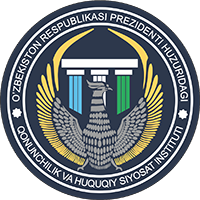The President of the Republic of Uzbekistan Shavkat Mirziyoyev put forward many proposals to ensure human rights at a meeting with members of the Constitutional Commission on the implementation of organizational measures and amendments to the Constitution of the Republic of Uzbekistan. In particular, one of the provisions contained in the Constitution adopted in the new revision is the “Miranda rule”. Particular attention is paid to the fact that the norm on the inclusion of this rule in the Constitution, that is, on the condition that when a person is caught, his rights and for what reason are explained in simple language, are strengthened in part 4 of Article 27 of the new Constitution.
Although the “Miranda rule” originally emerged in the national legislation and practice of the United States, today it is one of the most fundamental criteria of international law. Accordingly, the rights of a detainee as a suspect are explained during the arrest process, as well as before interrogation.
For information: “Miranda rule” is expressed in section 13, Article 38 of the Constitution of the Republic of Turkey.
The main purpose of this procedure is to prevent the arrested person from testifying against himself without knowing the essence of the criminal case and the charges brought against him.
At the same time, it should be noted that the requirements of the “Miranda rule” are expressed in a number of articles of the Criminal Procedural Code of the Republic of Uzbekistan. In particular, article 23 of the Code of Criminal Procedure establishes the right to remain silent. According to this article, the suspect, accused or defendant is not required to prove his innocence. In other words, the right to remain silent or not to testify in our national law is based on the principle of the presumption of innocence.
In addition, according to articles 46 and 48 of the Criminal Procedural Code, a person, that is, an accused or a suspect, has the right to give or refuse to give instructions on bringing charges or suspicion and any other circumstances of the case. He also has the right to be informed that his testimony may be used against him as evidence in a criminal case.
From the above, it can be concluded that the “Miranda rule” is reflected in the current criminal procedure legislation of the Republic of Uzbekistan. But the “Miranda rule” is defined in the Criminal Procedural Code as “diffused”, that is, scattered. In fact, this rule can be effectively applied in practice only if it is understood holistically.
At the same time, the “Miranda rule” is the most basic rule regarding human rights, which must be established at the constitutional level. In other words, there is little to do with defining the “Miranda rule” in the Criminal Procedural Code. It is desirable that this rule is expressed in the Basic Law, which is considered the best familiar and understandable document to the people.
Therefore, it is important that citizens know their rights under the “Miranda rule” not through the Criminal Procedural Code, but through the first gal, the Constitution. Also, the expression of the “Miranda rule” in our Constitutions creates the necessary legal guarantees for the full application of this principle.
It can be seen that human rights are recognized as the highest value under the framework of accepted norms.
For the first time in the history of our country, it was elected to the United Nations Human Rights Council. Uzbekistan’s Permanent Representative to the UN Division in Geneva and other international organizations was elected deputy chairman of the UN Human Rights Council.
National lectures on the implementation of international documents added by our country are constantly presented to the UN Human Rights Council and treaty committees. In the past period, 41 National lectures were presented to the UN Charter and treaty bodies on the fulfillment of Uzbekistan’s obligations on human rights and freedoms issues.
The international, regional and national initiatives promoted by Uzbekistan from the world pulpits are gaining recognition from the international community because they are aimed at ensuring human rights, freedoms and legitimate interests in every possible way, in a word, to fully realize the priority principle “for human value”.
All this indicates that the path of reform of the new Uzbekistan was chosen correctly. Consequently, as the Head of our state noted, “it is a real fact that reforms have become inevitable, which cannot be reversed”.
Sh.Mirzayev, Sh.Xodjayev, Sh.Zokirov
scientific staffs of the Institute of Legislation and Legal Policy
under the President of the Republic of Uzbekistan

